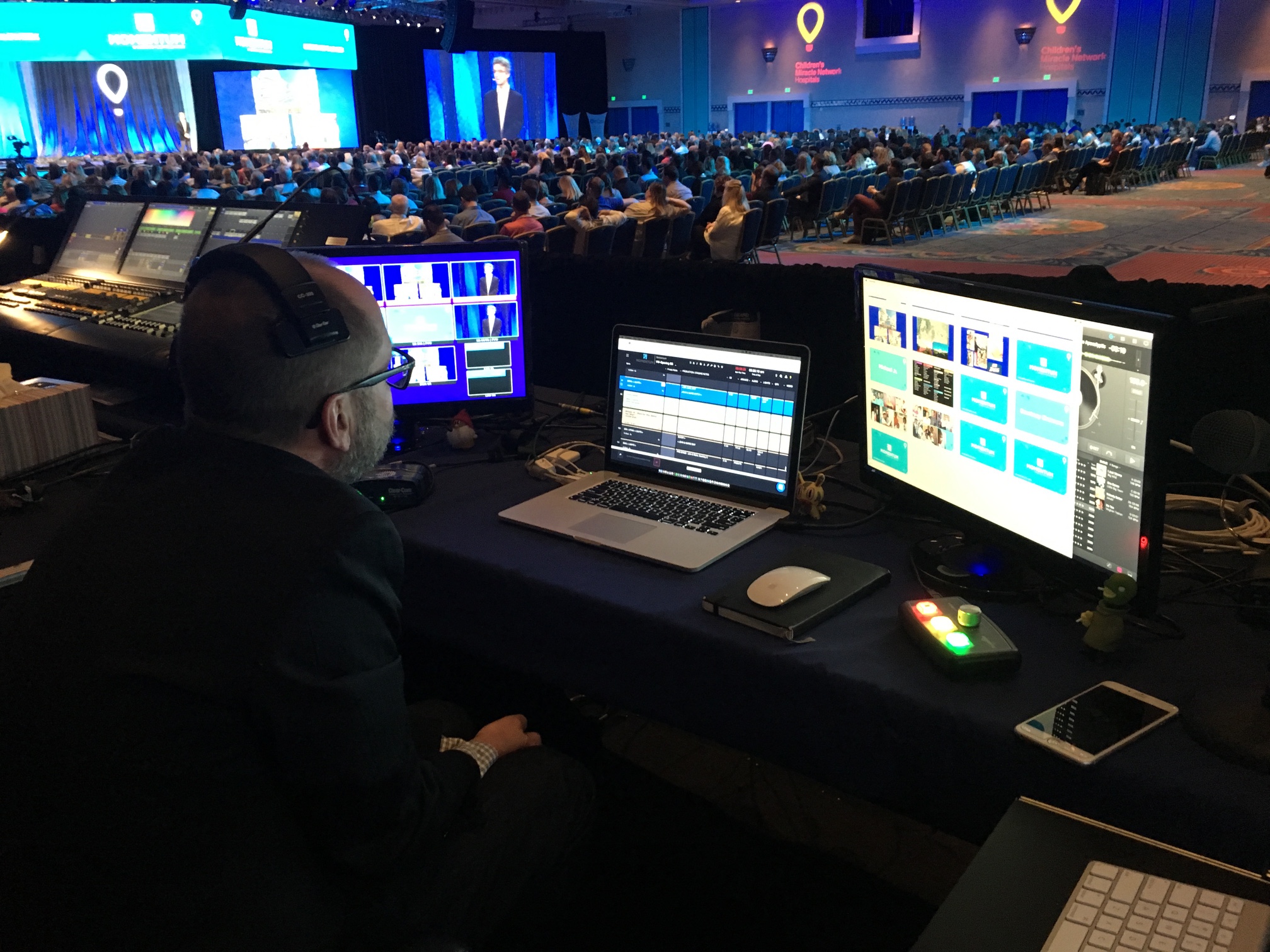Maximize Interaction with Interactive Elements in Event Productions
Maximize Interaction with Interactive Elements in Event Productions
Blog Article
Recognizing Exactly How Events Production Functions: A Comprehensive Summary of the Process
The intricacies of event production demand a systematic approach that integrates several stages, each playing an important function in the general success of an occasion. From the preliminary planning and idea advancement to the precise coordination of logistics, every aspect has to line up perfectly to accomplish the preferred result. Understanding the nuances of budgeting, resource appropriation, and on-site monitoring is crucial for any kind of expert in this area. As we check out these components better, it becomes noticeable that the process is not simply regarding implementation but likewise concerning continual renovation and calculated examination. What insights can we obtain from each stage?
First Planning and Principle Development
Efficient initial preparation and concept advancement function as the foundation for effective events manufacturing. This phase involves defining the event's objective, target audience, and desired outcomes. A clear vision is vital; it guides all succeeding decisions and helps align the group's initiatives toward a common goal.
During this stage, conceptualizing sessions can be invaluable. Involving stakeholders, consisting of clients, sponsors, and possible participants, cultivates a collaborative environment that produces innovative ideas. In addition, extensive market research study should be performed to understand trends, preferences, and potential challenges.
As soon as the concept is established, it is critical to produce a comprehensive occasion overview. This rundown should include the event's style, style, and key tasks. Establishing a timeline is just as vital, as it assists to take care of due dates and tasks efficiently.
Budgeting and Source Appropriation
With a solid concept in location, interest needs to transform to budgeting and source allocation, which are important elements in performing the occasion effectively. A distinct spending plan offers as a roadmap, describing all anticipated expenses and offered resources - Event Productions.
Resource allowance includes appointing both human and financial sources to numerous tasks and parts of the event. Prioritization is crucial; important elements ought to receive ample funding while less crucial aspects may need a more conventional technique. Backup preparation is critical-- alloting a section of the budget for unexpected costs can mitigate financial dangers.
Additionally, effective communication among staff member pertaining to budget restrictions fosters cooperation and innovation. This promotes the responsible use resources and urges innovative options to stay within budget plan. Ultimately, a strategic strategy to budgeting and source allotment prepares for a successful occasion, enabling organizers to concentrate on providing a memorable experience for attendees while preserving economic stability.
Logistics and Sychronisation
Navigating the complexities of logistics and coordination is essential for the smooth execution of any event. This phase entails meticulous planning and organization to make certain that all parts operate in consistency. Secret elements consist of location selection, transport arrangements, and the organizing of different tasks.
This includes understanding the format, accessibility factors, and offered sources. Working with these aspects needs collaboration with vendors, distributors, and transportation solutions to guarantee timely distributions and pickups.
Another critical element is the growth of a comprehensive timeline that details all logistical aspects leading up to the event. This timeline acts as a roadmap, outlining key landmarks and due dates for tasks such as tools setup, catering services, and audiovisual installations. Normal communication with all stakeholders is vital to deal with any potential concerns proactively.
Implementation and On-Site Monitoring
Successful execution and on-site management are critical for transforming precise plans right into truth throughout an event. Their ability to make real-time decisions can considerably influence the event's success.
A well-defined routine is crucial, serving as a roadmap for all activities. Occasion managers should make sure that arrangement takes place on time, sticking to timelines for audio checks, catering shipments, and guest arrivals. Effective analytical Learn More Here abilities are likewise crucial; unforeseen challenges can occur, requiring fast reasoning and versatility to preserve the occasion's flow.
In addition, attention to guest experience is extremely important. Keeping an eye on visitor interactions, guaranteeing security protocols are complied with, and supplying assistance staff to deal with worries promotes a positive ambience. This level of engagement not only improves the total experience but also mirrors the professionalism and trust of the event group. Event Productions. Eventually, effective execution and on-site management rest on thorough prep work, effective communication, and a commitment to supplying an outstanding occasion for all involved.

Post-Event Evaluation and Comments
The conclusion of any type of occasion exists not just in its execution however top article likewise in the detailed examination that adheres to. Post-event analysis is important for identifying the overall success of the occasion and determining locations for improvement. This process normally involves gathering feedback from numerous stakeholders, consisting of guests, vendors, and employee, to gain a thorough viewpoint on their experiences.
To structure the examination, event coordinators typically make use of surveys and meetings, concentrating on vital performance indicators such as guest complete satisfaction, logistical performance, and budget adherence. Analyzing this data enables coordinators to analyze whether the occasion fulfilled its purposes and to recognize the toughness and weak points of the execution.
Furthermore, compiling a comprehensive report summarizing the searchings for is essential for future reference. This documents not only acts as a Related Site valuable source for planning succeeding events but likewise fosters a culture of continuous improvement within the organization. By methodically addressing responses and implementing modifications, occasion professionals can improve their methods, inevitably leading to even more impactful and successful events. In conclusion, post-event evaluation is an essential action in the occasion manufacturing procedure that makes sure recurring development and quality in future undertakings.
Verdict

The intricacies of event manufacturing need a systematic approach that incorporates numerous stages, each playing a critical function in the general success of an occasion.With a solid idea in location, focus must transform to budgeting and source allotment, which are important components in carrying out the occasion effectively.Source allocation includes designating both human and economic resources to various tasks and components of the event. Inevitably, a calculated approach to budgeting and resource allowance lays the groundwork for a successful event, allowing organizers to concentrate on supplying a memorable experience for attendees while maintaining financial integrity.

Report this page